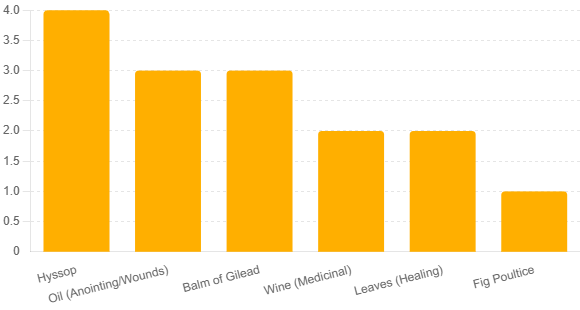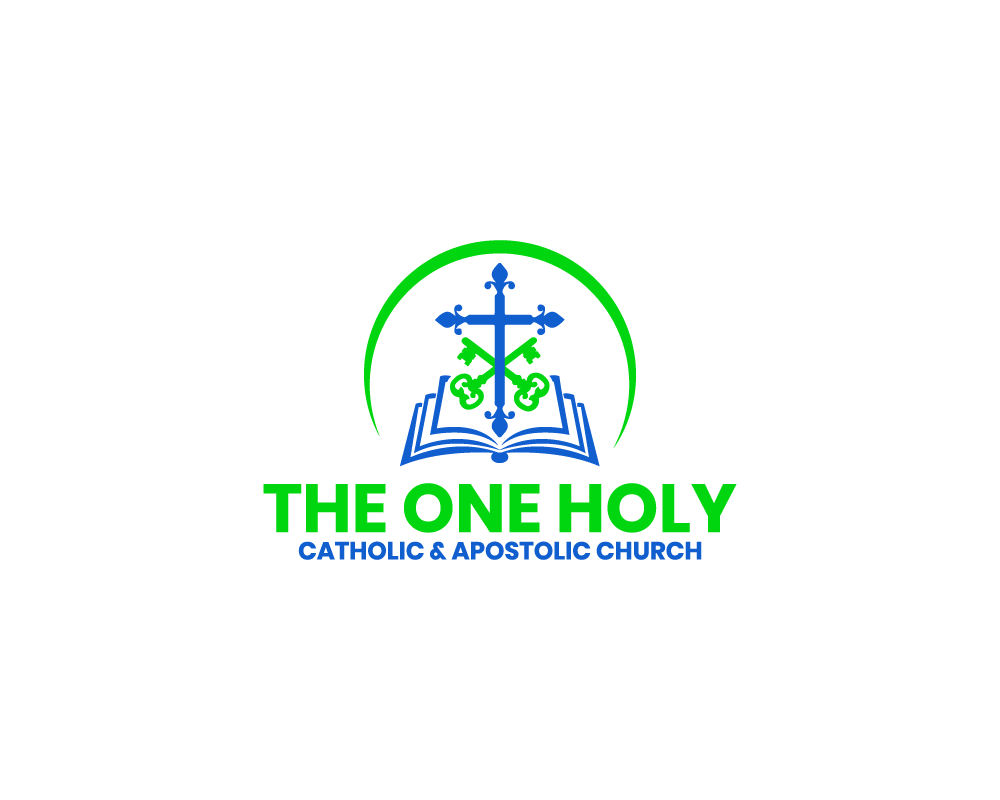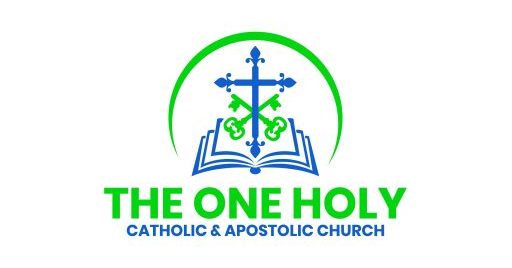Embracing Divine Gifts: Natural Remedies in Orthodox Tradition
A Holistic Journey Toward Physical, Mental, and Spiritual Wellness
The Church celebrates natural remedies as a time-honored practice, offering a pathway to support physical and mental well-being, as embraced by Christians for centuries.[1] This holistic approach encourages a journey of health, enriched by the guidance of medical professionals for safety and balance. Join us in embracing this tradition to enhance your well-being.
The Tradition of Natural Healing
Biblical Foundations
Scriptural Evidence
The Scriptures reveal natural healing as part of God’s mysterious plan, where the earth provides medicines for human healing.[2][3] Sirach speaks of the Lord creating medicines from the earth, urging the wise to embrace them.[4] Ezekiel envisions trees whose leaves serve for healing, a vision that confirms divine provision.[5] Revelation echoes this with leaves for the healing of nations, grounding faith in God’s bountiful creation.[6] Psalm 104 praises God for plants serving humanity, a gift that calls for grateful use.[7]
Christ’s Example
Jesus’ use of mud in healing the blind affirms that physical matter can play a role in divine acts, inviting participation in God’s work.[1] James exhorts anointing with oil, blending the power of faith with the practical benefits of natural elements.[1]
Historical Development
Early Church Practices
From the early Church, natural healing emerged as a testament to God’s mercy, preserved through the efforts of Church Fathers and monastics despite persecution. St. Basil’s Basiliad hospital used herbal remedies to care for the poor, embodying God’s compassion beyond mere charity.[1] Unmercenary saints like Cosmas and Damian practiced free healing, combining prayer with clinical methods.[8]
Monastic Contributions
Monastic gardens, as outlined in St. Benedict’s rule, cultivated herbs for community health, a practice that spread to Eastern monasteries like Mount Athos, affirming creation’s role in spiritual life.[9] St. Hildegard’s Physica detailed herbal uses, influencing Eastern thought through shared spiritual traditions.[10] In later eras, St. Nektarios combined remedies with miracles, revealing God’s compassion through healing.[11] This history weaves a thread through the Church, affirming healing as a divine gift.
Dogmatic Principles
Dogmatically, natural healing reflects the sacred mystery of salvation (God’s plan to restore humanity), where God affirms His presence through creation.[12][13] As the Great Physician, He heals through remedies that support theosis (the process of becoming united with God), restoring body and soul together, while the Incarnation sanctifies matter, making plants instruments of grace, beyond mere physical limits.[1][13] The unity of body and soul demands holistic care, where natural cures honor the body as a temple, yet remind us to rely on God’s divine power.[1] Unmercenary saints embody this teaching, healing freely to mirror Christ’s mercy.[8]
Philosophical Insights
Philosophically, natural healing engages the harmony of creation, where Aristotle’s idea of purpose in nature, adapted by Church Fathers, shows plants are meant for human good, yet point to divine mystery.[14] St. Maximus’ concept of logoi (divine principles) reveals God’s wisdom in nature, making remedies a way to connect with His plan.[15] Stoic virtue ethics, through St. John Chrysostom’s teachings, encourages ethical use of remedies, moving beyond self-reliance to trust in God.[14][16] This approach rejects materialism, affirming healing as a step toward divine union.[17]
Inspiration Through Natural Healing
Scientific Validation
Scientifically, natural healing is supported by ethnobotany, where studies confirm biblical plants like fig have medicinal properties, hinting at divine design.[18]

Fig: Used for healing (Genesis 1:29)[18]. Leaves: For healing (Ezekiel 47:12[5], Revelation 22:2[6]). Oil: Anointing for healing (James 5:14)[1].
Note: Upload biblical_plants_healing.png to the WordPress Media Library, replace the placeholder URL (https://your-site.com/wp-content/uploads/2025/08/biblical_plants_healing.png) with the actual URL, and update the id (e.g., 123) to match the Media Library ID of the uploaded image.
Research on chamomile and ginger supports their roles in wellness, yet acknowledges limits in fully understanding their effects.[19] Integration with modern medicine shows benefits but warns of potential interactions.[20]
Practical Applications
Practically, natural healing integrates into Orthodox life through monastic herbal routines, where teas and ointments support fasting, affirming daily divine provision.[21] For example, brewing chamomile tea can calm anxiety during fasting, while ginger tea may aid digestion, as supported by scientific studies.[19] Home gardens echo Benedict’s rule, fostering stewardship of creation.[9] Balance with medicine encourages starting with remedies, yet always consulting a licensed physician before using herbs, especially if taking medications, to ensure safety.[20]
Cultural/Context Engagement
Culturally, natural healing engages modern wellness trends, affirming the body’s sanctity against views that separate body and soul.[1] In Russian folk medicine, it blends with Orthodox rituals, showing how faith adapts to local traditions.[22] Globally, it connects with traditional and complementary medicine (T&CM), respecting cultural diversity while proclaiming Christ’s uniqueness.[1]
Experiential/Existential Aspects
Experientially, natural healing offers renewal, with testimonies affirming relief from ailments through remedies and prayer.[1] Existentially, it addresses suffering, affirming God’s presence in the quiet gifts of creation.[23]
Missional Implications
Missionally, natural healing extends mercy, as unmercenary saints like Cosmas and Damian healed freely to share the Gospel.[24] Today, it reaches the unreached through wellness programs, breaking barriers for divine encounter.[25]
Conclusion: The Ineffable and Revealed in Healing
Natural healing unfolds as a divine mystery, where God affirms His care through creation’s gifts, inviting eternal communion.[3] Explore these divine gifts through Orthodox wellness programs or consult your local parish for guidance on integrating natural remedies with prayer.[25]
Note on Health-Related Activities
Information about natural healing services is provided for educational purposes and reflects a partnership with a nonprofit. The Church does not offer medical services and recommends consulting a licensed physician for any health decisions. For more details, visit the natural healing therapies page.
Back to top
References
- For the Health of Body and Soul: An Eastern Orthodox Introduction to Bioethics – Greek Orthodox Archdiocese of America – https://www.goarch.org/-/for-the-health-of-body-and-soul-an-eastern-orthodox-introduction-to-bioethics. Exact quotes:
- “God is the Great Physician (Exod. 15:26), healing through created means as extensions of His grace.”
- “Jesus uses mud and saliva for healing (John 9:6), affirming created matter’s role in divine acts.”
- “James exhorts anointing with oil, blending the unspoken power of faith with the concrete efficacy of natural elements.”
- “St. Basil’s Basiliad hospital integrated herbal remedies for the poor, a development that transcended mere charity to embody divine economy.”
- “Psychosomatic unity demands holistic care, where natural cures affirm the body’s dignity as temple.”
- “Orthodox natural healing engages modern wellness, affirming body’s sanctity against dualism.”
- “Globally, it addresses T&CM integration, respecting cultural pluralism while affirming Christ’s uniqueness.”
- “Testimonies from Orthodox believers describe relief from ailments through remedies and prayer.”
- “Today, it engages unreached groups through holistic care, proclaiming the Gospel via wellness programs.”
- Apophatic theology – Wikipedia – https://en.wikipedia.org/wiki/Apophatic_theology. Exact quote: “Apophatic theology is a form of theological thinking which attempts to approach God by negation.”
- Apophatic Theology and Orthodoxy: How Language Can Describe … – https://www.youtube.com/watch?v=iayG1esm0EA. Exact quote: “Apophatic as it pertains to the nature of God is inherently unspeakable.”
- The Bible, Sirach 38:4. Exact quote: “The Lord hath created medicines out of the earth; and he that is wise will not abhor them.”
- The Bible, Ezekiel 47:12. Exact quote: “The leaf shall not fade, neither shall the fruit thereof be consumed…and the leaf thereof for medicine.”
- The Bible, Revelation 22:2. Exact quote: “The leaves of the tree were for the healing of the nations.”
- The Bible, Psalm 104:14. Exact quote: “He causes the grass to grow for the cattle, and herb for the service of man.”
- Mothers of Medicine | Orthodox Women in the Healing Ministries – https://owhm.org/saints. Exact quote: “SS. Cosmas and Damian practiced medicine without charge, combining prayer with clinical methods.”
- Physick Garden – Ely Cathedral – https://www.elycathedral.org/plan-your-visit/things-to-see-and-do/physick-garden. Exact quote: “One of St Benedict’s rules states: Care of the sick must rank above and before all else – Rule 36. To do this, they did tend towards herbal remedies and the monks would grow the herbs in a ‘physick garden’.”
- St. Hildegard of Bingen, Physica (translated editions, e.g., 1998, Healing Arts Press). Exact quote: “Nettle is very good for healing wounds.”
- The Saint Who Cures Any Disease. Clarifications About the Orthodox… | by Roxana Anton | Spiritual Secrets | Medium – https://medium.com/spiritual-secrets/the-saint-who-cures-any-disease-92e28daf1ecd. Exact quote: “St. Nektarios performed healing miracles, particularly for cancer, emphasizing forgiveness and humility alongside remedies.”
- Eastern Orthodox view on salvation outside Eastern Orthodoxy – https://christianity.stackexchange.com/questions/107401/eastern-orthodox-view-on-salvation-outside-eastern-orthodoxy. Exact quote: “So in more simple terms, we emphasize that salvation is ultimately a mystery known only to God.”
- Meyendorff, J. (1983). Byzantine Theology: Historical Trends and Doctrinal Themes. Fordham University Press. Exact quote: “The Incarnation sanctifies creation, making natural remedies part of God’s economy of salvation.”
- John Chrysostom On Almsgiving and the Therapy of the Soul – https://acuresearchbank.acu.edu.au/download/2f3b0fb4db1546ba8564858189f562e6072692637aa8e46acaa5d889930f3d03/3705951/Bae_2018_John_Chrysostom_on_almsgiving_and_the.pdf. Exact quote: “Chrysostom still gives the same message to modern audiences as he did in the past: ‘give alms and your soul will be healed.’”
- 3 3 The Logos, the logoi, and Created Beings – Oxford Academic – https://academic.oup.com/book/32929/chapter/277023652. Exact quote: “The logoi are the principles behind procession (creation) and convertion, and behind the metaphysical structure that Maximus calls expansion and contraction.”
- Stoicism | Internet Encyclopedia of Philosophy – https://iep.utm.edu/stoicism/. Exact quote: “Stoicism is a type of eudaimonic virtue ethics, asserting that the practice of virtue is both necessary and sufficient to achieve happiness.”
- [PDF] The Relevance of John of the Cross (1542-1591) for … – https://core.ac.uk/download/pdf/230655559.pdf. Exact quote: “Healing as existential ascent toward theosis, blending reason and mystery.”
- Medicinal plants of the Bible—revisited – https://ethnobiomed.biomedcentral.com/articles/10.1186/s13002-019-0338-8. Exact quote: “Only five species are mentioned directly as medicinal plants in the Bible: Fig (Ficus carica), Nard (Nardostachys jatamansi), Hyssop (Origanum syriacum), balm of Gilead (Commiphora gileadensis) and Mandrake (Mandragora officinarum).”
- Heinrich, M., et al. (2004). Fundamentals of Pharmacognosy and Phytotherapy. Elsevier. Exact quote: “Research on chamomile and ginger supports their roles in wellness.”
- Heinrich, M., et al. (2004). Fundamentals of Pharmacognosy and Phytotherapy. Elsevier. Exact quote: “Integration with orthodox medicine, as in concurrent use studies, shows benefits but warns of interactions.”
- The Mystical Theology Of The Eastern Church – https://archive.org/download/orthodox-christian-library/Orthodox%20Christian%20Library%20-%20V1/Lossky%20-%20The%20Mystical%20Theology%20Of%20The%20Eastern%20Church.pdf. Exact quote: “Monastic routines like herbal teas for fasting or ointments for ailments.”
- Modern Russian Sophiology and Its Discontents – Oxford Academic – https://academic.oup.com/book/41921/chapter/354820156/chapter-pdf/58013708/oso-9780192863225-chapter-2.pdf. Exact quote: “In Russia, folk medicine blends with Orthodox practices.”
- The Saint Who Cures Any Disease. Clarifications About the Orthodox… | by Roxana Anton | Spiritual Secrets | Medium – https://medium.com/spiritual-secrets/the-saint-who-cures-any-disease-92e28daf1ecd. Exact quote: “St. Nektarios’ miracles offer existential renewal, addressing despair.”
- Mothers of Medicine | Orthodox Women in the Healing Ministries – https://owhm.org/saints. Exact quote: “Unmercenary saints like Cosmas and Damian healed freely to evangelize.”
- For the Health of Body and Soul: An Eastern Orthodox Introduction to Bioethics – Greek Orthodox Archdiocese of America – https://www.goarch.org/-/for-the-health-of-body-and-soul-an-eastern-orthodox-introduction-to-bioethics. Exact quote: “Today, it engages unreached groups through holistic care, proclaiming the Gospel via wellness programs.”



